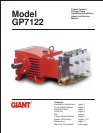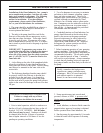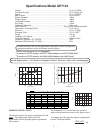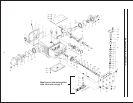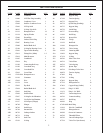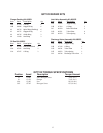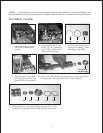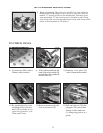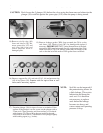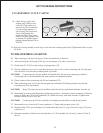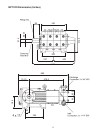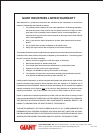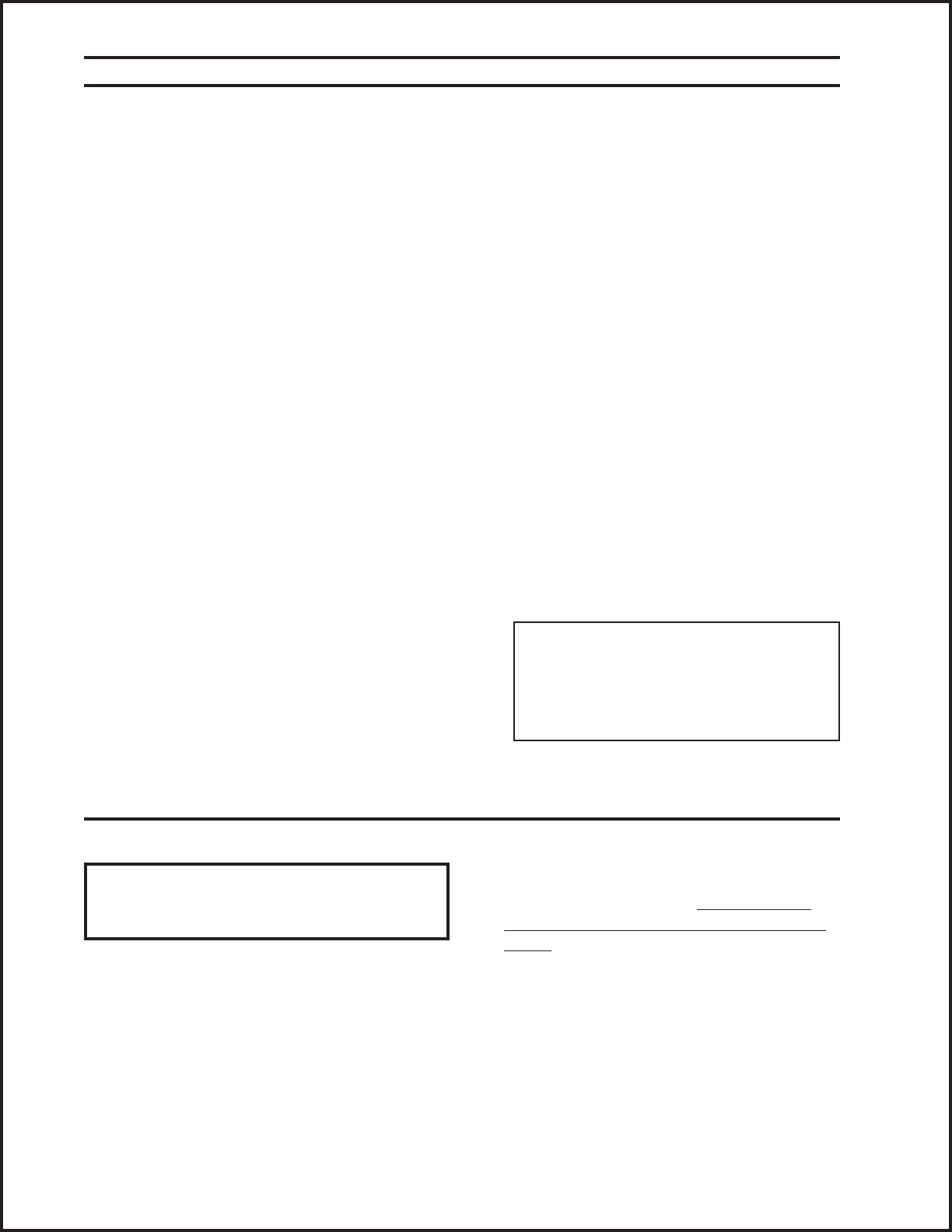
2
INSTALLATION INSTRUCTIONS
Installation of the Giant Industries, Inc., pump is
not a complicated procedure, but there are some
basic steps common to all pumps. The following
information is to be considered as a general
outline for installation. If you have unique
requirements, please contact Giant Industries,
Inc. or your local distributor for assistance.
1. The pump should be installed flat on a base to a
maximum of a 15 degree angle of inclination to
ensure optimum lubrication.
2. The inlet to the pump should be sized for the
flow rate of the pump with no unnecessary restric-
tions that can cause cavitation. Teflon tape should
be used to seal all joints. If pumps are to be oper-
ated at temperatures in excess of 140
o
F, it is impor-
tant to insure a positive head to the pump to prevent
cavitation.
IMPORTANT! To guarantee weep return, it is
essential that the inlet line is fitted to the support
screw (#62). If the inlet line is mounted to the
other side of the pump, then the whole connection
part (#s 62-62B, 64, 69-71) must be fitted to the
same inlet side.
3. A tube fitting on the side of the pumphead which
allows the circulation of water between the valve
casing and seal sleeves to take place. The tube fitting
must always be mounted on the same side as the
suction line.
4. The discharge plumbing from the pump should
be properly sized to the flow rate to prevent line
pressure loss to the work area. It is essential to
provide a safety bypass valve between the pump
and the work area to protect the pump from pressure
spikes in the event of a blockage or the use of a shut-
off gun.
2. Pump operation must not exceed rated
pressure, volume, or RPM.
A pressure relief
device must be installed in the discharge of the
system.
3. Acids, alkalines, or abrasive fluids cannot be
pumped unless approval in writing is obtained
before operation from Giant Industries, Inc.
4. Run the pump dry approximately 10 seconds
to drain the water before exposure to freezing
temperatures.
IMPORTANT OPERATING CONDITIONS
Failure to comply with any of these
conditions invalidates the warranty
1. Prior to initial operation, add oil to crankcase so
that the oil level is between the two lines on the oil
dipstick. DO NOT OVERFILL. SAE 80 Indus-
trial Gear oil may be used. Crankcase oil should
be changed after the first 50 hours of operation,
then at regular intervals of 500 hours or less de-
pending on operating conditions.
5. Use of a dampener is necessary to minimize
pulsation at drive elements, plumbing, connec-
tions, and other system areas. The use of a
dampener with Giant Industries, Inc. pumps is
optional, although recommended by Giant
Industries, Inc. to further reduce system pulsa-
tion. Dampeners can also reduce the severity of
pressure spikes that occur in systems using a
shut-off gun. A dampener must be positioned
downstream from the unloader.
6. Crankshaft rotation on Giant Industries, Inc.
pumps should be made in the direction desig-
nated by the arrows on the pump crankcase.
Reverse rotation may be safely achieved by
following a few guidelines available upon
request from Giant Industries, Inc. Required
horsepower for system operation can be ob-
tained from the chart on page 3.
7 Before beginning operation of your pumping
system, remember: Check that the crankcase
and seal areas have been properly lubricated per
recommended schedules. Do not run the pump
dry for extended periods of time. Cavitation
will result in severe damage. Always remember
to check that all plumbing valves are open and
that pumped media can flow freely to the inlet of
the pump.
Finally, remember that high pressure
operation in a pump system has many
advantages. But, if it is used carelessly
and without regard to its potential
hazard, it can cause serious injury.



